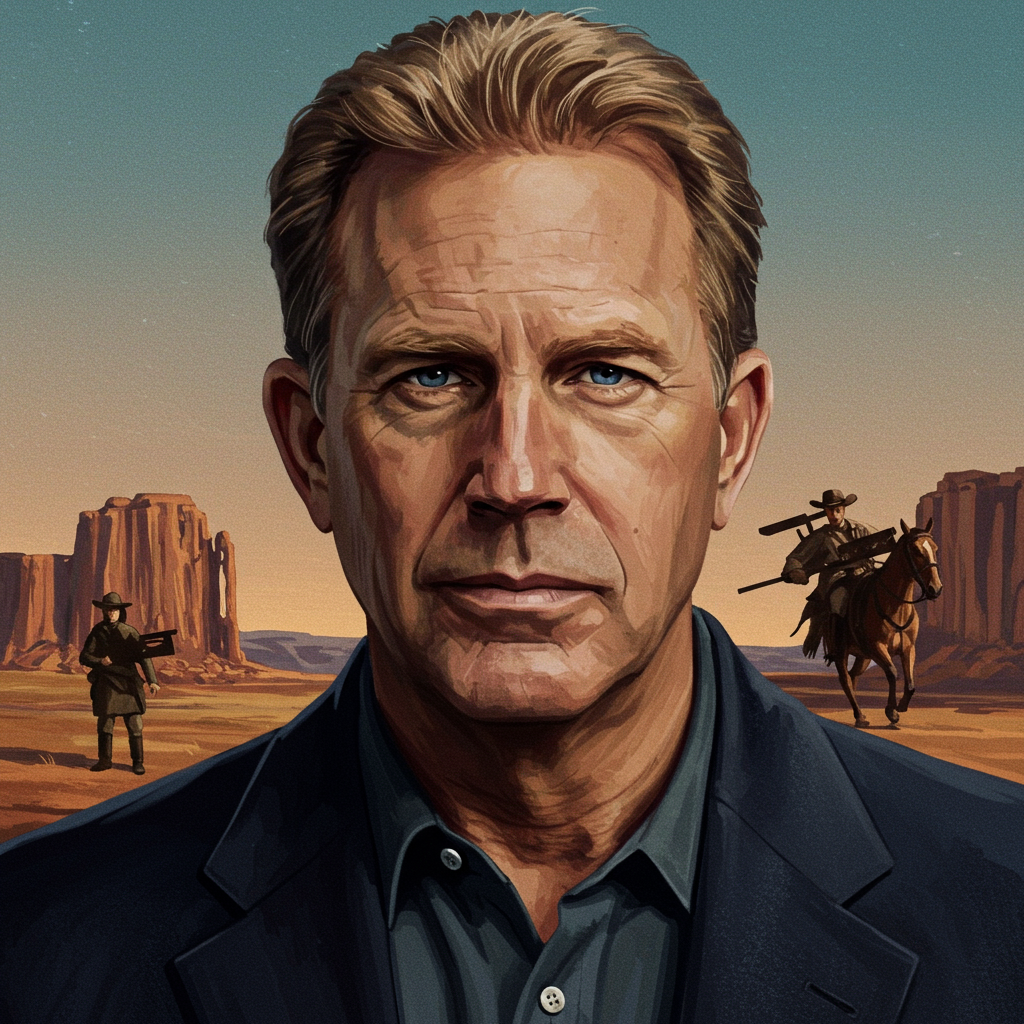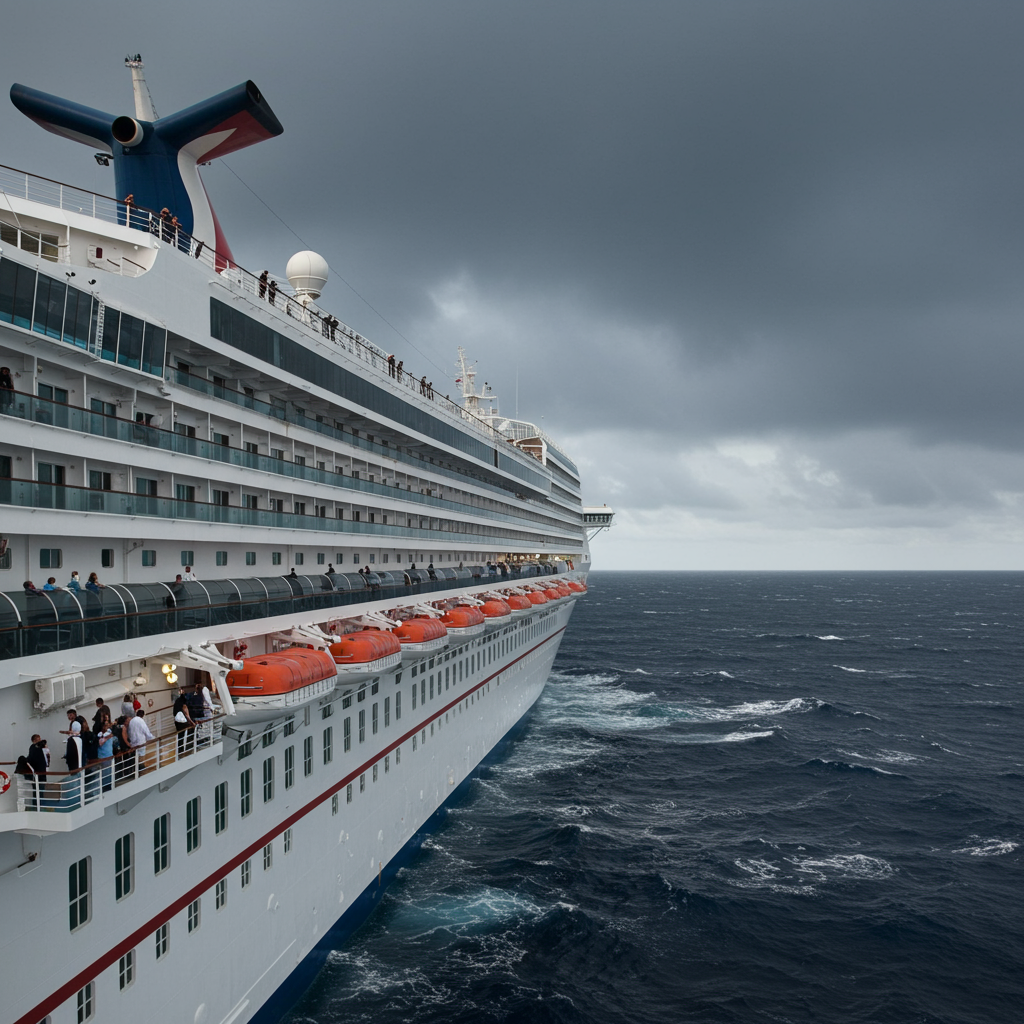Kevin Costner, a name synonymous with American Westerns and cinematic ambition, is facing a pivotal moment in his career. Once one of Hollywood’s most bankable stars, recent years have seen him grapple with high-profile exits from hit shows and the financial struggles of his passion projects. This deep dive explores the behind-the-scenes power struggles, financial gambles, and unwavering self-belief that define the challenging current chapter for Kevin Costner. From his contentious departure from Yellowstone to the box office disappointment of Horizon: An American Saga, what’s truly happening with this iconic actor-director?
The Fateful Yellowstone Clash: A Tipping Point
The tensions had been simmering, but a specific incident on the Yellowstone set revealed a growing rift. During filming for a tense Dutton family scene in Utah, Kevin Costner, serving as both star and executive producer, reportedly pushed co-star Wes Bentley to abandon Taylor Sheridan’s script. Costner wanted Bentley to perform the moment his own way. Bentley, however, firmly refused, stating he had signed up for a Taylor Sheridan show, not a Kevin Costner production.
According to an eyewitness, Kevin Costner reacted strongly. He “lunged” at Bentley. While no punches were thrown, the encounter escalated into a heated physical exchange. The two actors were reportedly “in each other’s faces, pushing and shoving” until crew members intervened. Witness Kelly Reilly was allegedly in tears, and production temporarily halted. This previously unreported “dust-up” became a critical “tipping point,” exposing creative power struggles and bruised egos on a set already under strain.
A Pattern of Unwavering Vision and Conflict
This Yellowstone incident was far from isolated for Kevin Costner. His career, spanning decades, is marked by similar feuds, walkouts, and legal battles. Sources describe a growing reputation for being “impossible” to work with. He’s reportedly clashed with industry heavyweights like Clint Eastwood and Kurt Russell over creative differences. Legal disputes over unpaid costume fees and a significant $15 million lawsuit against his long-time producing partner, Jim Wilson, further illustrate a challenging professional path.
Rick Nicita, Costner’s former agent, describes him as someone who “wanted what he wanted and knew what he wanted.” Nicita adds that Costner was “never a great compromiser,” attributing it to a firm self-belief that some perceived as arrogance. This uncompromising vision, while often leading to creative friction, has also been the bedrock of his greatest triumphs.
From Maverick Triumph to Costly Gambles
Kevin Costner’s early career epitomized bold, risky choices. His directorial debut, the 1990 Western Dances With Wolves, initially seemed destined for disaster. Hollywood insiders derided it as “Kevin’s Gate,” referencing a notorious box office bomb. Westerns were considered commercial poison, and Costner, a first-time director, appeared out of his depth. Yet, Costner famously invested $2.5 million of his own money into the $22 million project. The film defied all expectations, grossing $424 million and winning seven Academy Awards, including Best Picture and Best Director. This triumph solidified Kevin Costner as a “New American hero” and a global superstar.
He capitalized on this success with a string of hits: Robin Hood: Prince of Thieves, JFK, and The Bodyguard. Kevin Costner became one of the biggest names in Hollywood. However, this peak was followed by a downturn. The 1995 post-apocalyptic film Waterworld became a notorious production nightmare and financial debacle. Costner reportedly ignored Steven Spielberg’s advice to avoid filming on the open sea, leading to a record-breaking $175 million budget, plagued by hurricanes and injuries. Waterworld‘s poor box office performance, followed by another directorial flop, The Postman (1997), signaled the beginning of a “long, slow slide,” costing him the creative carte blanche he once commanded.
The Yellowstone Redemption and Its Unraveling
A true second act arrived for Kevin Costner with Yellowstone. His casting as John Dutton in the epic Western drama provided a rare opportunity for redemption and returned him to superstardom. Initially, the set environment was smooth, with Costner as the clear “big fish.” However, the show’s meteoric success shifted power dynamics significantly towards creator Taylor Sheridan. With the cast and Paramount executives fiercely loyal to Sheridan, Kevin Costner became an increasingly polarizing figure. Several sources reported “diva-like” imperiousness, culminating in the previously mentioned altercation with Wes Bentley.
Costner’s commitment to Yellowstone began to fray as his lifelong passion project, Horizon: An American Saga, gained momentum. Horizon, an ambitious multi-film Western saga he had envisioned since 1988, became his “white whale.” This obsession ultimately clashed with his Yellowstone schedule. Allegations arose about his limited availability for the final episodes, while Costner’s team countered with claims of delayed scripts from Sheridan. Ultimately, Costner’s demands for Season 5, including a $10 million upfront payment and script approval, were rejected. His character was set to be written out, a decision that reportedly cost Kevin Costner an estimated $45 million in potential earnings.
Horizon: A Personal Bet and a Box Office Bust
The pursuit of Horizon showcases Kevin Costner’s characteristic tenacity and willingness to gamble personal fortune. He leveraged the success of Dances With Wolves in pitch meetings, securing early investments and even a few million in Utah state grants. Crucially, Costner poured a staggering $38 million of his own money into the project, even mortgaging his $60 million Santa Barbara oceanfront property. Despite concerns about the sprawling 180-page script being “bananas-ville,” Costner forged ahead, driven by his unwavering belief. “Because I believe,” he told GQ in 2024.
Howard Kaplan, a former accountant who became Costner’s business partner, played a significant role in overseeing Horizon‘s finances. This involvement, however, reportedly alienated others, with one unit production manager suggesting Kevin Costner might have been “uninformed” about the true costs.
Horizon: An American Saga — Chapter 1 premiered at the Cannes Film Festival to mixed reviews and a 27% Rotten Tomatoes score. Its theatrical release in June 2024 proved to be a significant box office disaster, pulling in just $11 million on its opening weekend and a mere $38.7 million globally against a $100 million budget. This prompted Warner Bros. to pull the scheduled release of Horizon 2.
Steve Granelli, a communication studies professor, highlights several factors for Horizon‘s failure. He points to marketing issues, the film’s extensive three-hour runtime, and broader shifts in audience viewing habits. Granelli questions whether audiences are willing to invest in a three-hour “part one” of an original story theatrically. He also notes the “Yellowstone” factor: the show’s audience, typically older, prefers the convenience of home viewing for Western content. This suggests that even a beloved star like Kevin Costner is not enough to draw them to theaters for a genre considered “long past its prime” for the big screen.
The Horizon debacle has led to significant financial fallout. Costner faces a lien on his leveraged Santa Barbara property and ongoing arbitration with the bondholder, City National Bank, and distributor New Line Cinema. He even sought additional funding for Horizon‘s third and fourth installments in Saudi Arabia but reportedly walked away empty-handed. A lawsuit from a stunt performer and potential action from investor Tanner Beard add to his legal challenges.
Beyond the Horizon: What’s Next for Kevin Costner?
Despite these setbacks, Kevin Costner remains undeterred. He has shown no indication of abandoning his vision for four epic Horizon films, continuing to seek financing. News of a $100 million film studio in St. George, Utah, spearheaded by Costner, emerged, though sources indicate construction has stalled following Horizon‘s poor performance. While his acting career has new projects on the horizon, including a dramedy with Jake Gyllenhaal, he’s also diversified into celebrity speaking engagements and exploring a rum brand.
His journey echoes, in some ways, the career pivot of fellow Yellowstone actor Neal McDonough. McDonough, after facing significant career challenges due to his refusal to kiss women on screen, strategically embraced villainous roles, finding renewed success. While Costner’s challenges stem from creative control rather than personal convictions, both demonstrate a resilience to overcome industry hurdles.
Like an old Western gunslinger, Kevin Costner has been counted out before, only to gallop back, battered but unbowed, towards his next horizon. His story remains a testament to both the allure and the peril of uncompromising artistic ambition in Hollywood.
Frequently Asked Questions
What were the key reasons behind Kevin Costner’s exit from Yellowstone?
Kevin Costner’s departure from Yellowstone stemmed from a clash of creative control and scheduling conflicts related to his passion project, Horizon: An American Saga. Tensions escalated due to Costner’s “diva-like” reputation on set and a physical altercation with co-star Wes Bentley. Costner’s increasing focus on Horizon led to limited availability for Yellowstone‘s final seasons. Ultimately, his demands for Season 5, including a $10 million upfront payment and script approval, were rejected, leading to the decision to write his character, John Dutton, out of the show.
Where did Kevin Costner seek funding for his Horizon films after initial setbacks?
After personally investing $38 million and leveraging his own property to finance Horizon: An American Saga, Kevin Costner continued to seek additional capital. He secured investments from individuals like Danny Peykoff and utilized grants from the state of Utah. Following the disappointing box office performance of Horizon Chapter 1, Costner traveled to Riyadh, Saudi Arabia, to pitch top Saudi officials for financing for the third and fourth installments of the series. However, these discussions reportedly did not yield the desired sum, and he walked away without a deal.
Why did Horizon: An American Saga Chapter 1 struggle at the box office despite Costner’s star power?
Horizon: An American Saga Chapter 1 struggled at the box office due to a combination of factors, including its extensive three-hour runtime, marketing challenges, and shifting audience viewing habits, according to industry experts. Despite Kevin Costner’s star power, audiences were hesitant to commit to a lengthy “part one” of an original story in theaters. The film’s primary demographic, akin to Yellowstone viewers, has grown accustomed to consuming Western content conveniently at home on streaming platforms, suggesting that a beloved star alone isn’t enough to draw them to cinemas for a genre considered past its theatrical prime.
References
- www.hollywoodreporter.com
- <a href="https://www.imdb.com/news/ni65511493/?ref=nwcart_perm”>www.imdb.com
- www.hollywoodreporter.com
- www.nine.com.au
- news.northeastern.edu



